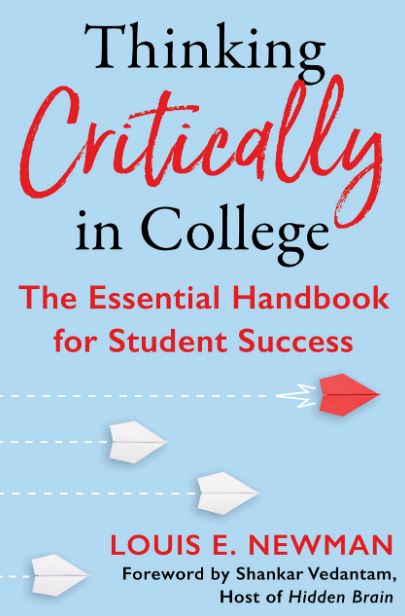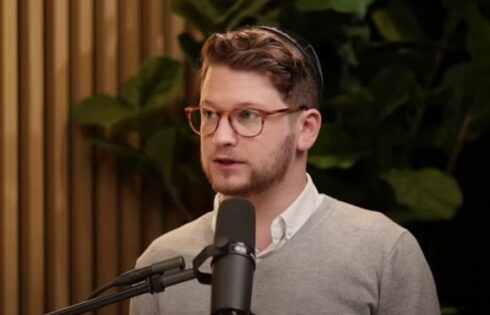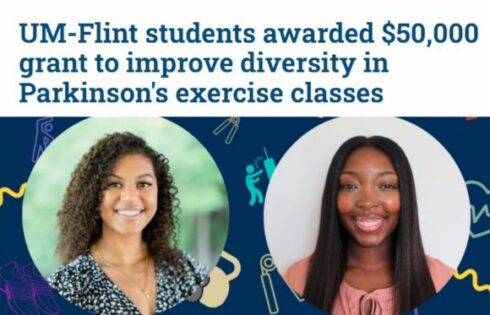
Scholar Louis Newman guides students through four cardinal modes of thought
The same week Stanford University’s law students harried conservative Judge Kyle Duncan, a former undergraduate dean at the same school, Louis Newman, published a timely guide to critical thinking skills.
In “Thinking Critically in College: The Essential Handbook for Student Success,” Newman outlines academic strategies, best practices and approaches that will help students achieve what he holds as the goal of undergraduate education: to become a better thinker.
Newman discussed his book in an interview with The College Fix. He bills it as a quick start guide to help new undergraduate students navigate the college experience.
“Nobody comes to college knowing how to” think like a professor, Newman said. “This book is about how to do the work that college demands of you, do it more easily with less struggle, and be able to pay attention to how your professors think.”
“Thinking Critically in College” features two sections. The first describes the basic skills and approaches that will help students succeed. These include metacognition–awareness of how one thinks and learns–and four essential elements of critical thinking: exploring context, considering alternatives, weighing evidence, and finding implication and new applications.
After reviewing each academic discipline, the book then draws on those basic skills to deconstruct undergraduate assignments.
The second part provides a deeper dive into academic skills, exploring how to read, write, crunch numbers, and the research in a college setting.
 Newman (pictured) said he sees his book as compensating for assumptions instructors make about the way their students learn. Professors often assume that students will naturally develop good thinking through well-crafted assignments, he said, but faculty “sometimes forget just how much college students need to be helped to understand these critical kinds of thinking that we do pretty naturally in our respective disciplines.”
Newman (pictured) said he sees his book as compensating for assumptions instructors make about the way their students learn. Professors often assume that students will naturally develop good thinking through well-crafted assignments, he said, but faculty “sometimes forget just how much college students need to be helped to understand these critical kinds of thinking that we do pretty naturally in our respective disciplines.”
The book’s lessons draw on Newman’s four decades as an educator, helping students as both a faculty member and a dean.
At Stanford, Newman had worked as dean of academic advising and the associate vice provost for undergraduate education. Previously, he taught at Carleton College, where he was a professor in religious studies and later the director of advising. He was at Carleton from 1983 until 2016.
Newman said he first realized the pedagogical lapse after discussing a presentation with a student.
“As I walked away from that conversation, I began to think, ‘Well why don’t we have a resource to give students when they start college which would outline exactly what those critical thinking skills are and how to do them” without leaving students to “struggle to figure them out along the way.”
 For Newman, helping students do so is important because colleges seek to train people who will be able to engage meaningfully with the wider world.
For Newman, helping students do so is important because colleges seek to train people who will be able to engage meaningfully with the wider world.
That seems pertinent as Newman notes that people are particularly susceptible to poor thinking amidst the confluence of perennial misinformation with the recent phenomena of social media and political polarization.
“All of those elements together have created a situation in which people sometimes don’t think as clearly and as methodically and as carefully as they could about what they believe and what others believe and the statements that they encounter in life and on the internet,” he said. “That is the societal challenge.”
Newman’s key to instilling these much needed thinking skills is a focus on the incisive questions which arise from applying his “four essential elements of critical thinking.”
The elements–exploring context, considering alternatives, weighing evidence, and finding implication and new applications–each “involve asking questions of what’s in front of you,” Newman said.
“When you’re taking a course, you’re always presented with material,” and “you’re almost always being asked to do something with it–to make something of it, to make sense of it, to put it in context, to explain it, to analyze it. Those mental processes invariably involve raising those four kinds of questions.”
For instance, the section about “weighing evidence” suggests questions like: “Is this evidence factually true and persuasive?” and “Has the author resorted to rhetorical strategies to make up for a lack of factual support?”
“When you ask those sorts of questions, you get a richer, deeper understanding of what you’re looking at,” Newman told The Fix. “They’re the kinds of things that in every discipline, you’re going to benefit from focusing on.”
“Putting them on an index card, you could have them as your mental framework every time you encounter a new course or assignment that would help you dig deeper, see things more clearly, and see things in relationship to other things that you’ve encountered in your life or the course. That’s how I think they help you think critically,” he said.
College assignments then help students hone Newman’s four essential skills. His book demonstrates this by decomposing sample assignments and other college tasks.
One sample assignment asks students to develop a hypothesis about income inequality. The book guides students through the assignment, relating the questions asked to the four critical thinking skills and then identifying the steps students must take to satisfactorily complete answer them.
Newman recognizes, though, that “there’s a lot that goes into a student’s academic journey and success. That’s why the book includes short pieces called ‘advice for the road ahead,’ interspersed between the chapters, where I try to convey certain attitudes and perspectives that students can take on their education in general.”
In one such section, for example, the book emphasizes the importance of asking for help when struggling in college: “The most successful college students, in my experience, aren’t those who never need help; they’re the ones who figured out early when they needed it and how to access it,” according to Newman.
After his years of experience, Newman encourages students to “take the long view, look at what college is going to do for you for the rest of your life and not just immediately after your graduate.”
“When you do that, you focus on the kinds of modes of thinking and analysis” emphasized in the book, he said.
MORE: Most college students won’t discuss controversial topics for fear of peer backlash: survey
IMAGE: Gorodenkoff / Shutterstock
Like The College Fix on Facebook / Follow us on Twitter






Please join the conversation about our stories on Facebook, Twitter, Instagram, Reddit, MeWe, Rumble, Gab, Minds and Gettr.